
Bertoua: Gateway to the East of Cameroon
Bertoua, the bustling capital of the East Region of Cameroon, serves as a gateway to the country's vast eastern wilderness. Nestled amidst lush forests and rolling hills, Bertoua offers visitors a unique blend of natural beauty and cultural richness. The city's vibrant markets, filled with the sights and sounds of daily Cameroonian life, provide an authentic experience for those looking to immerse themselves in local traditions. A visit to Bertoua is not complete without exploring the nearby national parks and wildlife reserves. These protected areas are home to a variety of wildlife, including elephants, gorillas, and numerous bird species. Adventure seekers can embark on guided tours through dense forests, discovering hidden waterfalls and picturesque landscapes along the way. The region's natural beauty is complemented by its warm and welcoming people, who are always eager to share their heritage and stories. Bertoua is also a hub for cultural festivals and traditional ceremonies. Throughout the year, the city hosts events that showcase the diverse customs and traditions of the Eastern Region's many ethnic groups. From vibrant dances to intricate crafts, these festivals provide a deeper understanding of the local culture. Whether you're an avid nature lover or a culture enthusiast, Bertoua offers a rich and rewarding travel experience.
Local tips in Bertoua
- Visit the local markets early in the morning for the freshest produce and handmade crafts.
- Hire a local guide when venturing into the national parks to ensure safety and gain insider knowledge about the wildlife.
- Attend a cultural festival if possible to experience the traditional dances and ceremonies of the Eastern Region.
- Pack light, breathable clothing and insect repellent for your excursions into the forests.
- Try the local cuisine, especially dishes made with fresh plantains and cassava.
Bertoua: Gateway to the East of Cameroon
Bertoua, the bustling capital of the East Region of Cameroon, serves as a gateway to the country's vast eastern wilderness. Nestled amidst lush forests and rolling hills, Bertoua offers visitors a unique blend of natural beauty and cultural richness. The city's vibrant markets, filled with the sights and sounds of daily Cameroonian life, provide an authentic experience for those looking to immerse themselves in local traditions. A visit to Bertoua is not complete without exploring the nearby national parks and wildlife reserves. These protected areas are home to a variety of wildlife, including elephants, gorillas, and numerous bird species. Adventure seekers can embark on guided tours through dense forests, discovering hidden waterfalls and picturesque landscapes along the way. The region's natural beauty is complemented by its warm and welcoming people, who are always eager to share their heritage and stories. Bertoua is also a hub for cultural festivals and traditional ceremonies. Throughout the year, the city hosts events that showcase the diverse customs and traditions of the Eastern Region's many ethnic groups. From vibrant dances to intricate crafts, these festivals provide a deeper understanding of the local culture. Whether you're an avid nature lover or a culture enthusiast, Bertoua offers a rich and rewarding travel experience.
When is the best time to go to Bertoua?
Unmissable attractions to see
Parc Sembe Lecco
Explore the peaceful oasis of Parc Sembe Lecco in Bertoua, where nature and local culture come together for a unique experience.
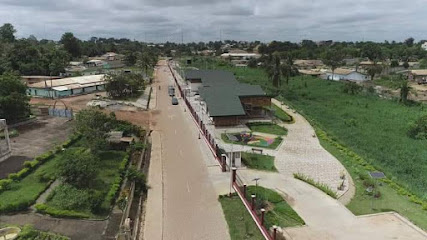
Carrefour face à face
Explore Carrefour Face à Face in Bertoua, a vibrant tourist attraction offering a taste of local culture, markets, and community life in Cameroon.
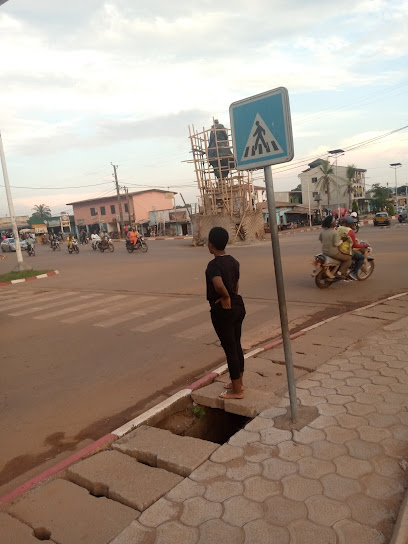
Hôtel LE HAMAC
Experience the vibrant culture and warm hospitality at Hôtel LE HAMAC, your perfect getaway in Bertoua, Cameroon.
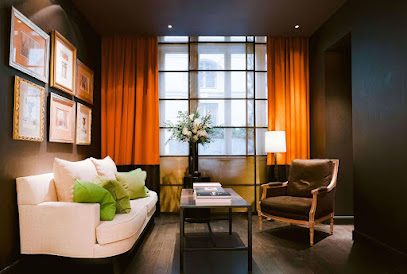
d'enia Public Garden
Discover the tranquility and beauty of d'enia Public Garden in Bertoua, a perfect retreat for nature lovers and city explorers alike.

Laverie
Explore Laverie in Ndoumbi, a serene tourist attraction perfect for immersing in local culture and enjoying nature's beauty.
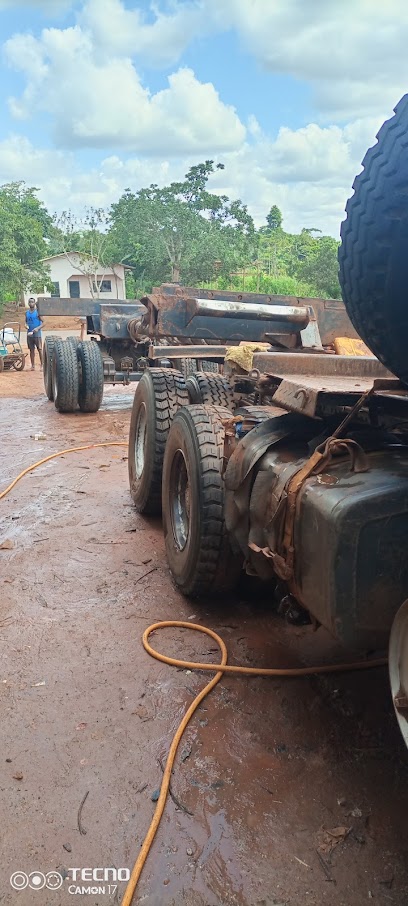
Avenir de la nkadey
Discover Avenir de la Nkadey in Bertoua: a vibrant hub of Cameroonian culture, stunning nature, and unforgettable local experiences.
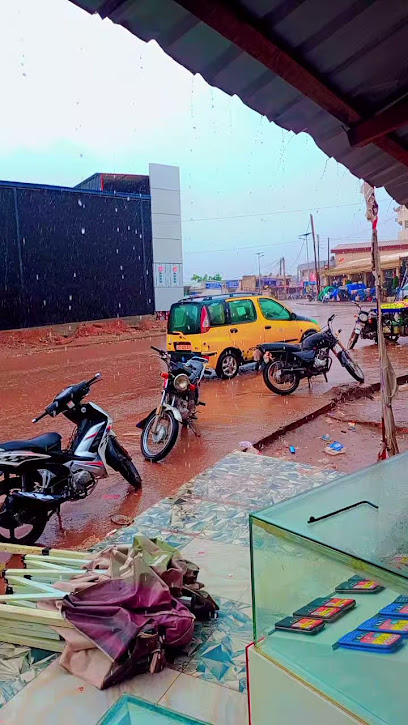
Antenne orange kano
Experience the natural beauty and tranquility of Antenne Orange Kano Park in Bertoua, a perfect getaway for nature lovers and relaxation seekers.

GOGO GBATARE
Explore GOGO GBATARE, a picturesque tourist attraction in Ngoura, Cameroon, where nature and culture beautifully intertwine for an unforgettable experience.

Essential places to dine
Chez Tata Angel -- Braised Fish Restaurant
Experience authentic Cameroonian cuisine at Chez Tata Angel - where braised fish meets tradition in every delicious bite.
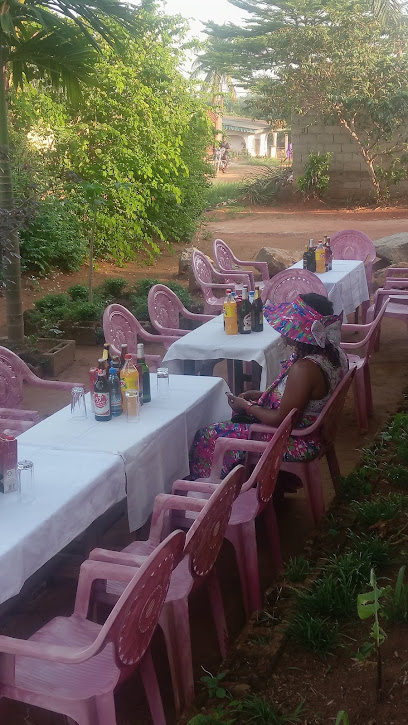
La Camerounaise des Glaces de Bertoua
Experience the sweetest moments at La Camerounaise des Glaces de Bertoua – where every scoop tells a story of flavor!
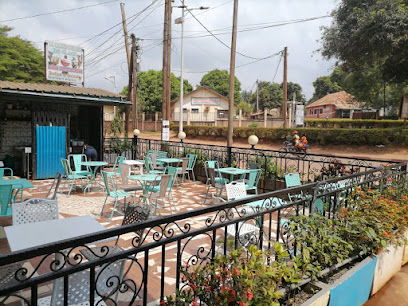
Restaurant La Petite Pygmée
Experience authentic Cameroonian flavors at Restaurant La Petite Pygmée in Bertoua - a culinary gem for discerning travelers.
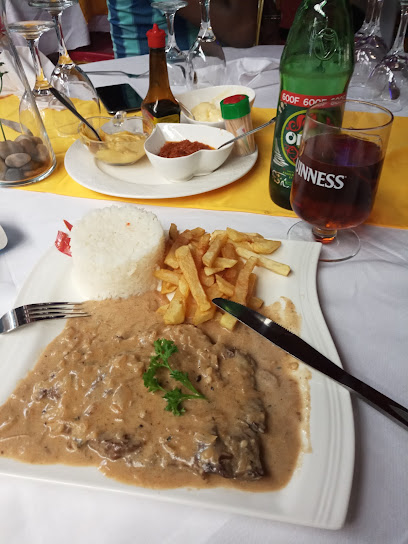
Le Délice Sucré Salé
Discover authentic Cameroonian cuisine at Le Délice Sucré Salé in Bertoua – where flavors meet culture in an inviting setting.
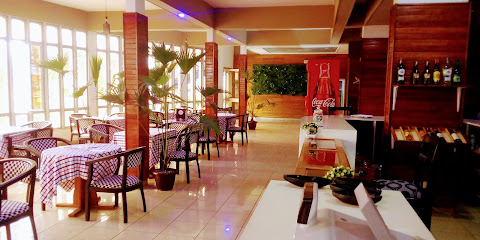
Restaurant Soleil D'epice
Discover the essence of Cameroonian cuisine at Restaurant Soleil D'epice in Bertoua - where every dish tells a story.
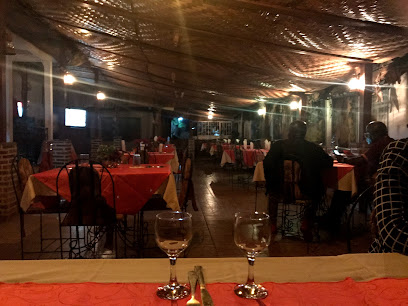
Restaurant Chez Minette
Experience authentic Cameroonian cuisine at Restaurant Chez Minette in Bertoua - a culinary gem celebrating local flavors and warm hospitality.
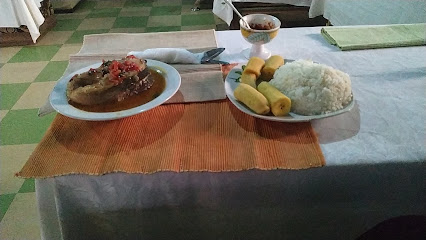
CEFOHRGA Restaurant
Experience authentic Cameroonian flavors at CEFOHRGA Restaurant in Bertoua - where tradition meets taste in a welcoming atmosphere.
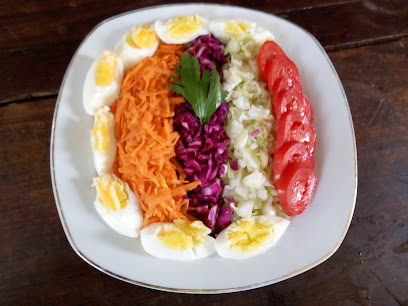
RESTAURANT LE SAREH BERTOUA
Delve into authentic African flavors at Restaurant Le Sareh Bertoua – where every meal tells a story.
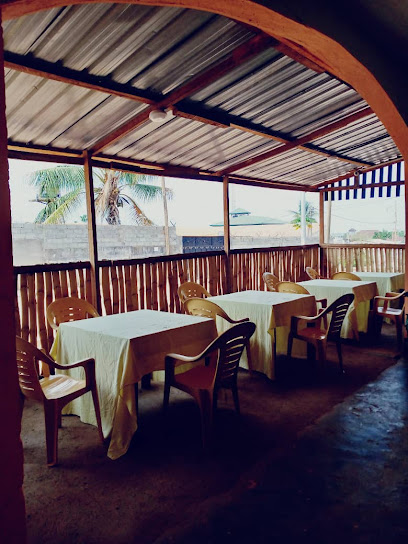
Restaurant la patrona
Discover the essence of Cameroonian cuisine at Restaurant la Patrona in Bertoua – where every meal tells a story.
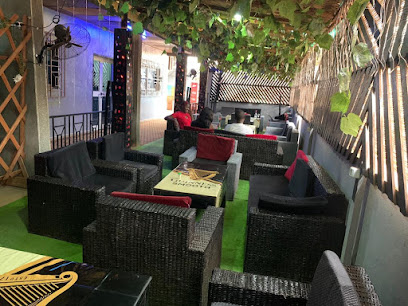
Les DÉLICES DE MA'A Jacky
Discover the flavors of Cameroon at Les DÉLICES DE MA'A Jacky, where family-friendly dining meets authentic culinary experiences.
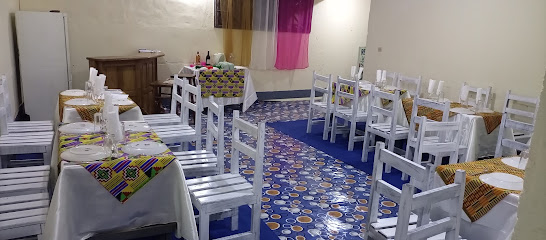
Restaurant Plazza
Discover culinary delights at Restaurant Plazza in Bertoua - where local flavors meet a vibrant dining experience.
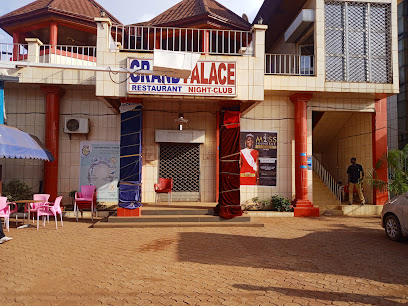
Les Délices d'Afrique Restaurant Bar Grillades
Experience authentic African cuisine at Les Délices d'Afrique Restaurant Bar Grillades in Bertoua - where rich flavors meet warm hospitality.
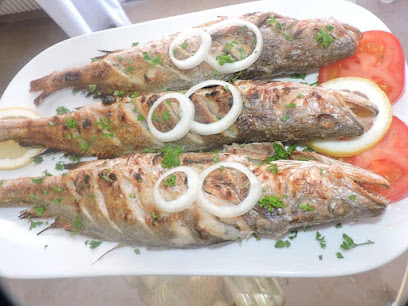
Hangout. Bar-Restaurant
Discover authentic Cameroonian cuisine at Hangout, Bertoua's lively bar-restaurant offering great food and vibrant atmosphere.
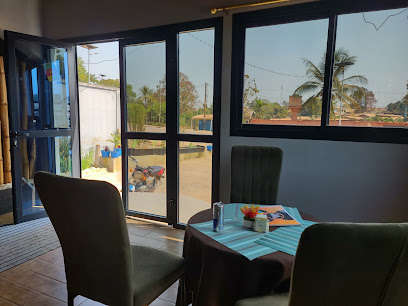
Restaurant Bar Impérial Blue
Discover culinary delights at Restaurant Bar Impérial Blue in Bertoua - where local flavors meet exceptional service.
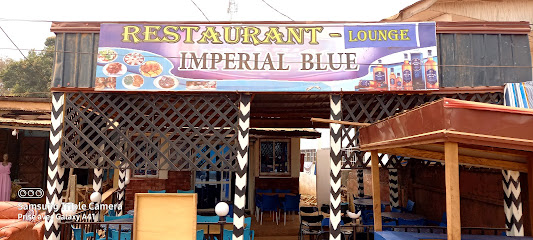
Sister vero's restaurant
Discover the authentic taste of Cameroon at Sister Vero's Restaurant in Bertoua - where local flavors meet warm hospitality.
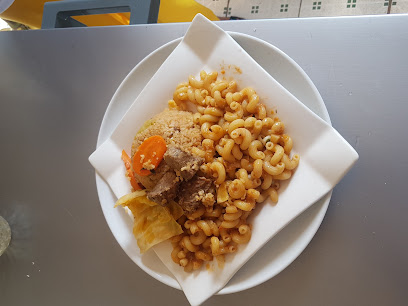
Markets, malls and hidden boutiques
Marché Doumbi
Discover Bertoua's vibrant Marché Doumbi, a shopping haven with local crafts, delicious cuisine, and an authentic cultural experience.
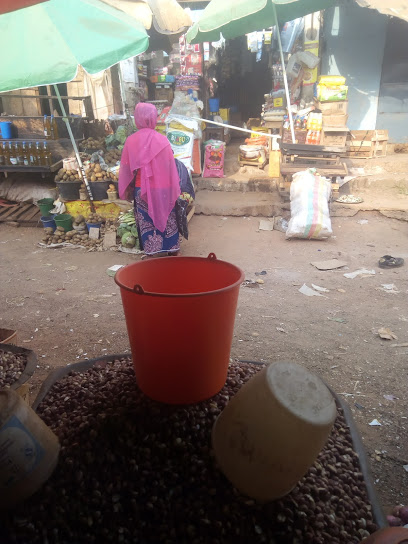
CANAL+ LA BOUTIQUE
Experience the vibrant culture and modern retail at CANAL+ LA BOUTIQUE, the premier shopping destination in Bertoua, Cameroon.
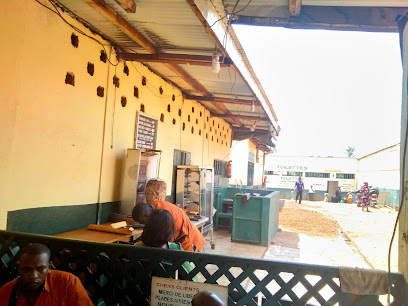
Galerie Populaire
Discover the vibrant culture and local flavors at Galerie Populaire, a premier supermarket in Bertoua, Cameroon.
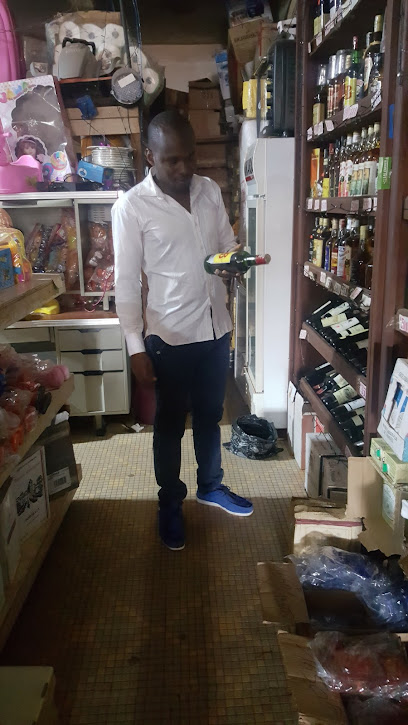
Sté Ets A. Nziko Bertoua
Experience the vibrant shopping culture of Bertoua at Sté Ets A. Nziko, a bustling hub of local commerce and cultural delights.

BACHAR SHOPPING
Explore Bachar Shopping in Bertoua for a vibrant collection of unique posters that celebrate the local culture and artistry.
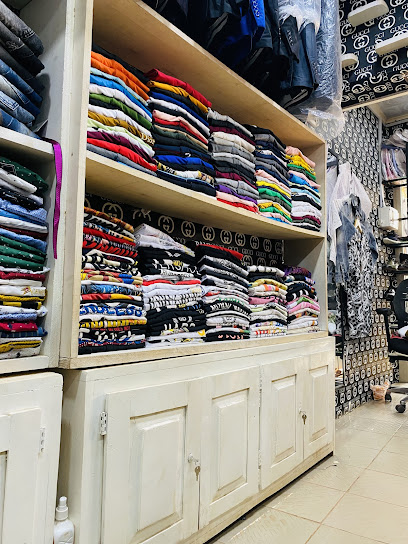
Agence SOACAM bertoua II
Discover the essence of Bertoua at Agence SOACAM Bertoua II, a vibrant shopping mall offering local crafts, delicious food, and a unique cultural experience.

BASIC SHOP
Explore the vibrant BASIC SHOP in Bertoua for local delicacies and travel essentials, enhancing your experience in Cameroon.
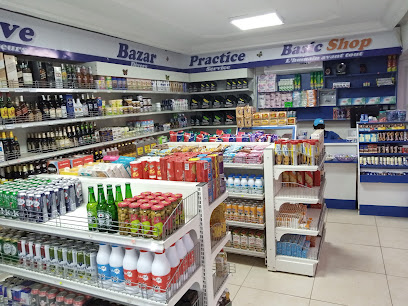
Abdou Couture
Discover the art of tailoring at Abdou Couture in Bertoua, where custom designs and local craftsmanship come together.
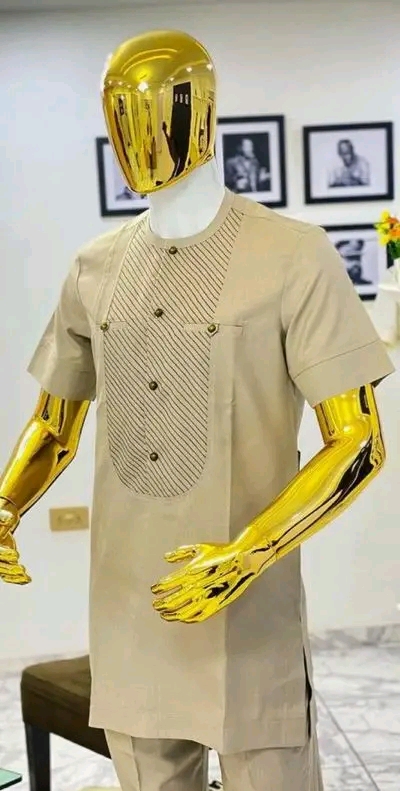
HASSIMI STORE
Explore the vibrant Hassimi Store in Bertoua for exquisite jewelry and custom engraving, showcasing the artistry of local craftsmanship.

Luxury Shop
Explore the epitome of luxury fashion in Bertoua at this exclusive clothing store, where style meets sophistication and quality.
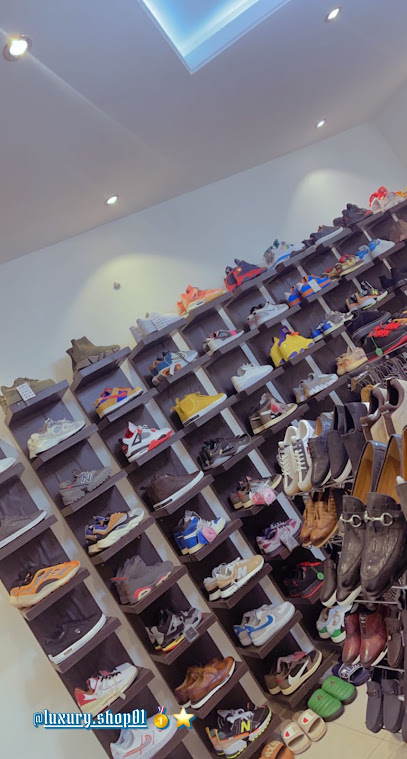
Boutique
Experience the unique blend of craftsmanship and culture at Bertoua's boutique hardware store, a must-visit for tourists seeking authentic local treasures.

Doume
Explore Doume Book Store in Bertoua for a unique literary experience, offering a delightful selection of books that reflect Cameroon's rich culture.
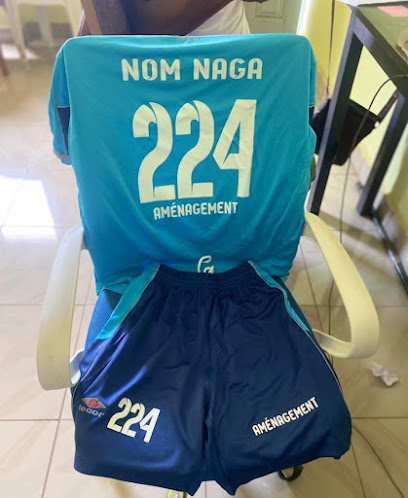
INVERSIO Boutique
Explore unique fashion at INVERSIO Boutique, a premier clothing store in Bertoua, blending local culture with contemporary styles.
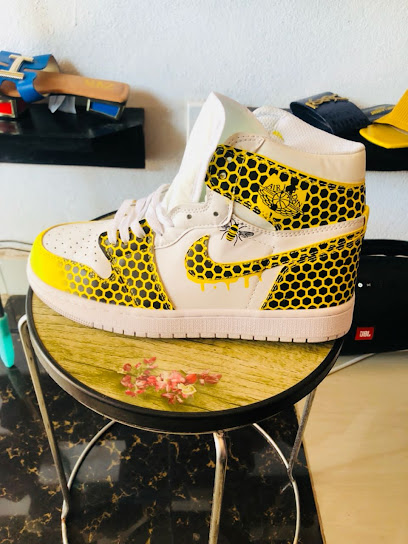
HB clothing & Accessories
Explore the latest fashion trends and accessories at HB Clothing & Accessories in Bertoua, where style meets quality.
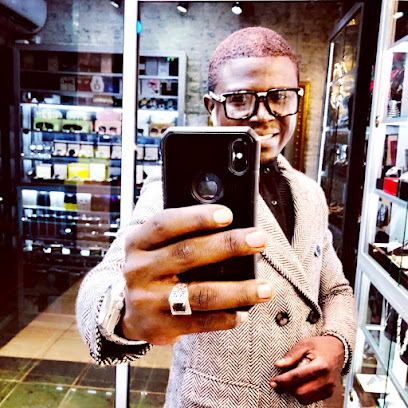
Jaguar alimentation
Discover the vibrant shopping scene and local culture at Jaguar Alimentation in Bertoua, a must-visit destination for every traveler.

Essential bars & hidden hideouts
LE ZÜRIKOI DE BERTOUA
Discover the vibrant nightlife of Bertoua at Le Zürikoi de Bertoua, where relaxation meets entertainment in a lively lounge atmosphere.
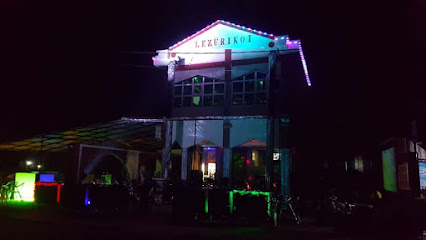
ekombitie bar
Discover the lively ambiance and local flavors at Ekombitie Bar in Bertoua, where unforgettable experiences await every visitor.
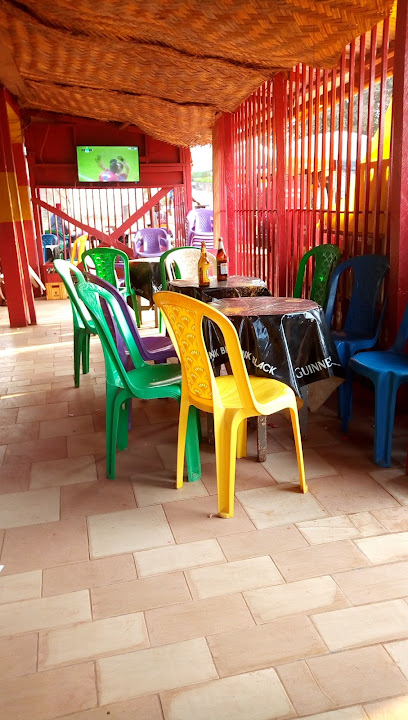
Massayo Bar
Discover the essence of Bertoua's nightlife at Massayo Bar, a lively beer hall serving local brews and fostering connections.
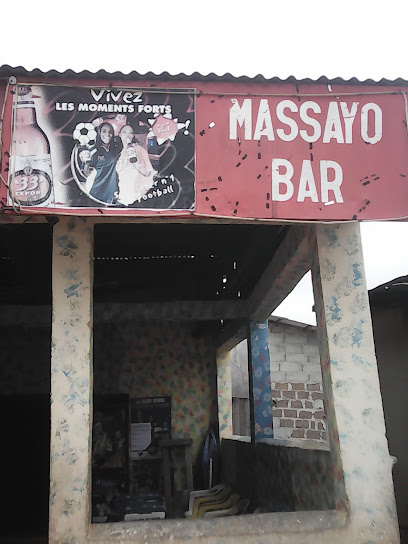
Ayaba Bar
Experience the vibrant energy of Bertoua at Ayaba Bar, your go-to destination for drinks and local culture.
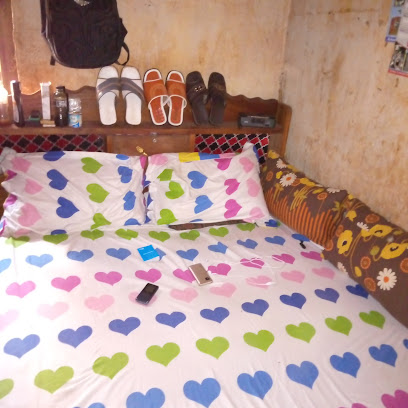
Ndouanaise Bar
Discover the lively Ndouanaise Bar in Bertoua, a vibrant spot for tourists to enjoy local drinks and immerse themselves in the culture.

Nassara Bar
Experience the lively atmosphere and local flavors at Nassara Bar, Bertoua's favorite hangout for tourists and locals alike.
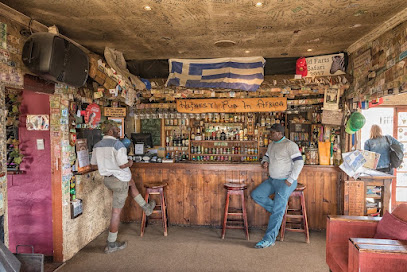
ACHILLO BAR
Achillo Bar in Bertoua: A vibrant bar where drinks flow and local culture thrives, perfect for unwinding and socializing.
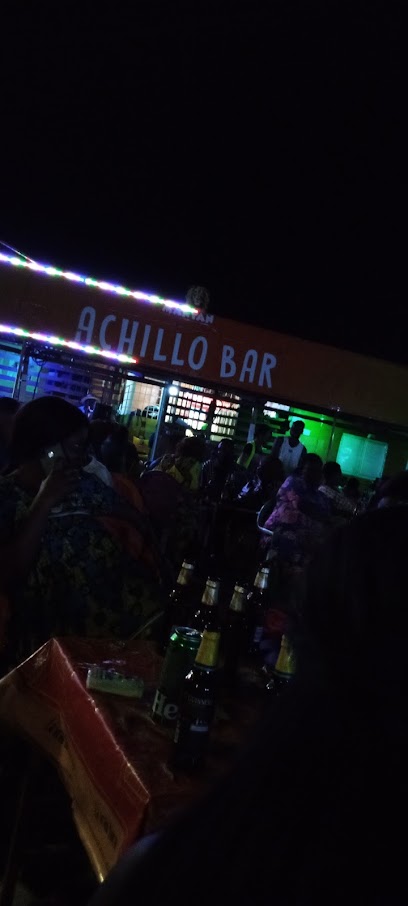
Vayraï Bar
Experience the vibrant atmosphere and local flavors at Vayraï Bar, Bertoua's premier destination for relaxation and socializing.
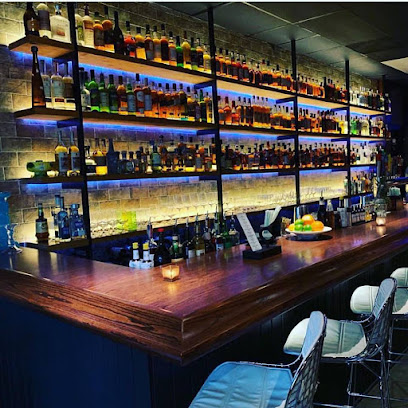
Cocotier bar
Experience the vibrant nightlife at Cocotier Bar in Bertoua, where great drinks and friendly locals come together for an unforgettable evening.

Panthère Bar
Explore Bertoua's vibrant nightlife at Panthère Bar, where affordable drinks and a lively atmosphere await every visitor.

Le Pangar
Experience the vibrant nightlife at Le Pangar, Bertoua's go-to bar for drinks, music, and local culture.
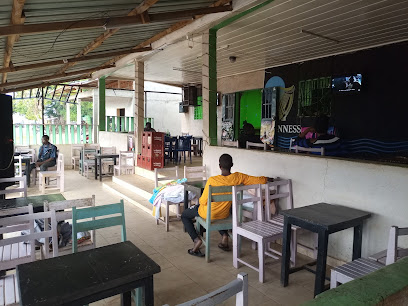
Blanche Bar
Experience the vibrant nightlife and authentic local culture at Blanche Bar in Bertoua, Cameroon, a true haven for relaxation and enjoyment.

Copa Cabana
Discover the vibrant nightlife of Bertoua at Copa Cabana, where refreshing drinks and lively entertainment come together for an unforgettable experience.

Continental Bar
Discover the lively Continental Bar in Bertoua - a perfect blend of local culture and vibrant nightlife for an unforgettable experience.

Partenaire bar
Discover the vibrant ambiance of Partenaire Bar in Bertoua, a perfect spot for tourists to unwind and enjoy local flavors in a friendly atmosphere.
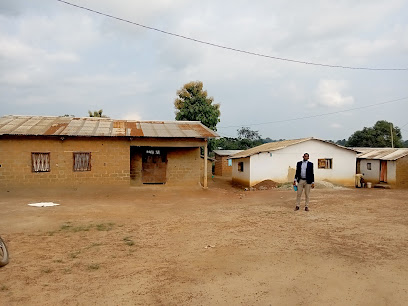
Local Phrases
-
- HelloMbolo
[m-boh-loh] - GoodbyeNdaa
[ndah] - YesEe
[eh] - NoAyi
[ah-yee] - Please/You're welcomeMbele
[m-beh-leh] - Thank youNdolo
[n-doh-loh] - Excuse me/SorryNtap
[n-tap] - How are you?Ndolo?
[n-doh-loh] - Fine. And you?Nkwa. Ee?
[n-kwah. eh] - Do you speak English?Mbu na fitara Englesa?
[m-boo nah fee-tah-rah ehn-gleh-sah] - I don't understandAyi mandi
[ah-yee mahn-dee]
- HelloMbolo
-
- I'd like to see the menu, pleaseMbele na la kati, ndolo
[m-beh-leh nah lah kah-tee, n-doh-loh] - I don't eat meatAyi kwa nyama
[ah-yee kwah nyah-mah] - Cheers!Ma nde!
[mah n-deh] - I would like to pay, pleaseMbele na luma, ndolo
[m-beh-leh nah loo-mah, n-doh-loh]
- I'd like to see the menu, pleaseMbele na la kati, ndolo
-
- Help!Mboa!
[m-boh-ah] - Go away!Vaa!
[vah] - Call the Police!Kola Polis!
[koh-lah poh-lees] - Call a doctor!Kola dokta!
[koh-lah dohk-tah] - I'm lostAyi nde nyolo
[ah-yee n-deh n-yoh-loh] - I'm illAyi nde be
[ah-yee n-deh beh]
- Help!Mboa!
-
- I'd like to buy...Mbele na luma...
[m-beh-leh nah loo-mah] - I'm just lookingAyi mbele
[ah-yee m-beh-leh] - How much is it?Ndi nde baa?
[n-dee n-deh bah] - That's too expensiveAyi mbi nde
[ah-yee m-bee n-deh] - Can you lower the price?Ndaa bua nde baa?
[ndah bwah n-deh bah]
- I'd like to buy...Mbele na luma...
-
- What time is it?Ndi nde ndolo?
[n-dee n-deh n-doh-loh] - It's one o'clockNdi nde na
[n-dee n-deh nah] - Half past (10)Ndi nde nyolo (10)
[n-dee n-deh n-yoh-loh (10)] - MorningNde
[n-deh] - AfternoonNde na ndem
[n-deh nah n-dehm] - EveningNde na nde
[n-deh nah n-deh] - YesterdayNde na nyolo
[n-deh nah n-yoh-loh] - TodayNde na
[n-deh nah] - TomorrowNde na be
[n-deh nah beh] - 1Nde
[n-deh] - 2Nde na
[n-deh nah] - 3Nde na nyolo
[n-deh nah n-yoh-loh] - 4Nde na tolo
[n-deh nah toh-loh] - 5Nde na naa
[n-deh nah nah] - 6Nde na ndi
[n-deh nah n-dee] - 7Nde na nde
[n-deh nah n-deh] - 8Nde na ndo
[n-deh nah n-doh] - 9Nde na ndee
[n-deh nah n-deh-eh] - 10Nde na mwa
[n-deh nah m-wah]
- What time is it?Ndi nde ndolo?
-
- Where's a/the...?A yi fe...
[ah-yee feh] - What's the address?A yi la nde?
[ah-yee lah n-deh] - Can you show me (on the map)?Ndaa bua a yi (na la plan)?
[ndah bwah ah-yee (nah lah plahn)] - When's the next (bus)?Ndi nde nde (bus)?
[n-dee n-deh n-deh (boos)] - A ticket (to ....)La tikiti (di ....)
[lah tee-kee-tee (dee)]
- Where's a/the...?A yi fe...
History of Bertoua
-
Bertoua, the capital of the East Region of Cameroon, has a rich history that dates back to the early settlements of indigenous tribes such as the Gbaya, Baka, and Maka peoples. These tribes have lived in the area for centuries, maintaining their unique cultural practices, languages, and traditional ways of life. The dense forests and fertile lands provided ample resources for hunting, gathering, and small-scale agriculture.
-
In the late 19th century, Bertoua, like much of Cameroon, came under German colonial rule. The Germans established administrative posts and began to exploit the region's resources, particularly timber. The construction of roads and railways facilitated the movement of goods and people, significantly impacting the local economy and social structure. The German influence can still be seen today in some of the colonial-era architecture and infrastructure.
-
After Germany's defeat in World War I, Cameroon was divided between the French and the British under a League of Nations mandate. Bertoua fell under French control, leading to a period of increased administrative organization and further development. The French introduced new agricultural techniques, expanded the educational system, and improved healthcare facilities. This period also saw the rise of local resistance movements against colonial rule.
-
Cameroon gained independence from France in 1960, and Bertoua became an important administrative and commercial center in the newly formed nation. The city's strategic location and natural resources attracted investment and led to significant urban growth. The establishment of educational institutions, such as the University of Bertoua, contributed to the city's cultural and intellectual development.
-
Bertoua is renowned for its vibrant cultural heritage, which is celebrated through various festivals and traditional ceremonies. The National Festival of Arts and Culture (FENAC) is a major event that showcases the diverse cultural expressions of the region, including music, dance, crafts, and cuisine. The city's markets are bustling with local artisans selling intricate beadwork, textiles, and carvings that reflect the rich artistic traditions of the indigenous tribes.
-
In recent years, Bertoua has seen rapid development and modernization. Infrastructure projects, such as road improvements and the expansion of public services, have enhanced the quality of life for many residents. However, the city also faces challenges, including managing urbanization, preserving its natural environment, and addressing social inequalities. Efforts are underway to balance economic growth with sustainable development to ensure a prosperous future for Bertoua.
Bertoua Essentials
-
Bertoua is accessible by road, primarily via the N10 highway from the capital city Yaoundé, which is approximately 350 kilometers away. The journey by car or bus takes around 5-6 hours. Bus services from large transport companies like Touristique Express and General Express are available daily. There is no commercial airport in Bertoua, so the nearest airport is Yaoundé Nsimalen International Airport. From there, you can take a taxi or arrange for a shuttle service to Bertoua.
-
Within Bertoua, transportation options include motorbike taxis (locally known as 'benskins'), regular taxis, and minibuses. Motorbike taxis are the most common and cost-effective means of getting around the city. For longer distances, taxis and minibuses are available and can be hailed from designated stops or hired for private use. Renting a car is also an option, but be prepared for variable road conditions.
-
The official currency in Cameroon is the Central African CFA Franc (XAF). Cash is the primary mode of transaction in Bertoua, although some larger establishments like hotels and supermarkets may accept credit cards. ATMs are available in the city, but it is advisable to carry enough cash, especially if you plan to visit remote areas. Currency exchange services are available in major banks and at the airport in Yaoundé.
-
Bertoua is generally safe for tourists, but it is essential to take standard precautions. Avoid walking alone at night, especially in poorly lit areas. High-crime areas targeting tourists are relatively rare, but it is always best to stay vigilant. Keep your belongings secure and be cautious of pickpockets in crowded places like markets and bus stations.
-
In case of emergency, dial 112 for police assistance and 113 for medical emergencies. The main hospital in Bertoua is the Regional Hospital, which provides basic medical services. Pharmacies are available for over-the-counter medications. It is strongly recommended to have travel insurance that covers medical emergencies. For consular assistance, contact your nearest embassy or consulate in Yaoundé.
-
Fashion: Do dress modestly, especially when visiting religious sites and rural areas. Avoid overly revealing clothing. Religion: Do respect local customs and traditions. Remove shoes when entering places of worship. Public Transport: Do be polite and greet the driver when boarding. Don't eat or drink on public transport. Greetings: Do greet people with a handshake and a friendly smile. Learn a few basic phrases in French or the local dialect. Eating & Drinking: Do try local dishes and accept food offerings graciously. Don't refuse hospitality, as it is considered impolite.
-
To experience Bertoua like a local, visit the vibrant local markets where you can buy fresh produce and traditional Cameroonian crafts. Engage with locals, as they are often friendly and willing to share stories about the city's history and culture. Don't miss visiting the nearby wildlife reserves such as the Dja Faunal Reserve, a UNESCO World Heritage Site. For a unique experience, attend local festivals and cultural events, which offer a glimpse into the rich traditions and customs of the region.
Nearby Cities to Bertoua
-
Things To Do in Carnot
-
Things To Do in Yaoundé
-
Things To Do in Bafia
-
Things To Do in Ngaoundéré
-
Things To Do in Foumban
-
Things To Do in Ebolowa
-
Things To Do in Bitam
-
Things To Do in Bafoussam
-
Things To Do in Mbouda
-
Things To Do in Edea
-
Things To Do in Dschang
-
Things To Do in Nkongsamba
-
Things To Do in Bamenda
-
Things To Do in Douala
-
Things To Do in Kribi




